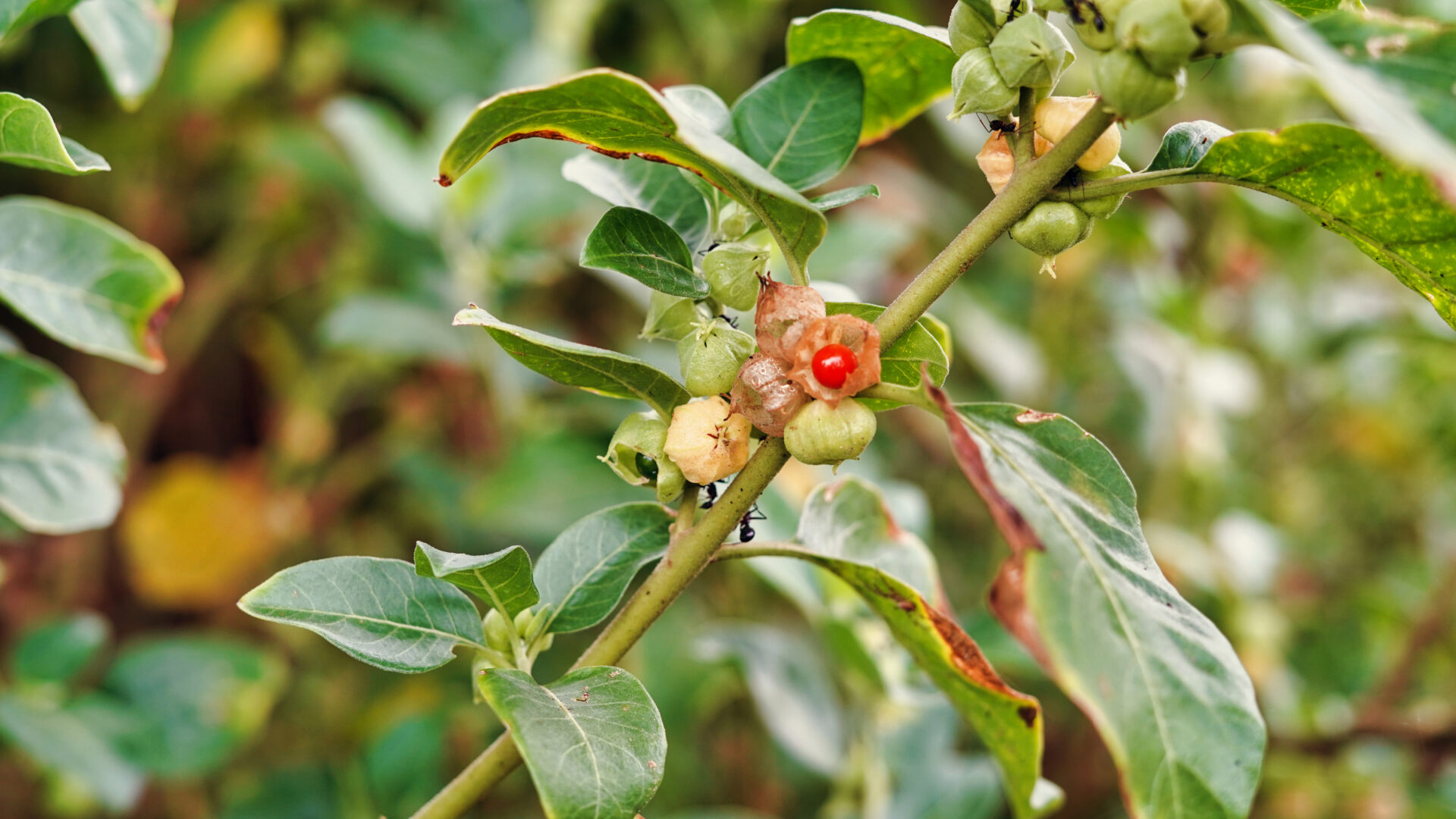
Ashwagandha: Unlocking Its Benefits for Health and Immunity
Ashwagandha, scientifically known as Withania somnifera, is an ancient medicinal herb rooted in Ayurvedic tradition. Often dubbed the “Indian ginseng,” this adaptogenic herb has gained global attention for its potential to enhance overall health and bolster immunity. In this post, we explore the science-backed benefits of ashwagandha, its effects on the immune system, and how it can support a healthier you.
What is Ashwagandha?
Ashwagandha is a small shrub native to India, the Middle East, and parts of Africa. Its roots and leaves are used in herbal remedies, primarily for their adaptogenic properties—meaning they help the body adapt to stress and maintain balance. The herb contains active compounds like withanolides, alkaloids, and saponins, which contribute to its therapeutic effects.
Key Health Benefits of Ashwagandha
1. Stress and Anxiety Reduction
Ashwagandha is best known for its ability to reduce stress. It works by lowering cortisol levels, the hormone released during stress, which can negatively impact health if chronically elevated. A 2019 study published in Medicine found that ashwagandha supplementation significantly reduced anxiety and stress levels in participants compared to a placebo.
- How it helps: By calming the nervous system, ashwagandha promotes mental clarity and emotional well-being, which indirectly supports immune function, as chronic stress can weaken immunity.
2. Boosting Immune Function
Ashwagandha’s immunomodulatory effects make it a promising ally for immune health. It enhances the activity of immune cells, such as natural killer (NK) cells and T-cells, which are critical for fighting infections. A 2016 study in Journal of Ethnopharmacology showed that ashwagandha increased white blood cell counts and improved immune response in animal models.
- Why it matters: A stronger immune system can better defend against pathogens, making ashwagandha a potential supplement for cold and flu season or for those with compromised immunity.
3. Improving Energy and Vitality
Ashwagandha is often used to combat fatigue and boost energy levels. It supports mitochondrial function, the powerhouse of cells, enhancing stamina and reducing feelings of exhaustion. This can be particularly beneficial for individuals recovering from illness or dealing with chronic fatigue.
- Pro tip: Pairing ashwagandha with a balanced diet and exercise can amplify its energizing effects.
4. Supporting Cognitive Health
The herb’s antioxidant properties protect brain cells from oxidative stress, potentially improving memory and cognitive function. Research in Phytotherapy Research (2020) suggests ashwagandha may enhance cognitive performance and attention, making it a valuable tool for mental sharpness.
5. Enhancing Sleep Quality
Ashwagandha’s calming effects extend to sleep. It promotes relaxation by regulating the body’s stress response, helping individuals fall asleep faster and enjoy deeper rest. A 2021 study in Sleep Medicine found that ashwagandha root extract improved sleep quality in participants with insomnia.
- Why it’s key: Quality sleep is essential for immune system recovery and overall health.
How Ashwagandha Supports Immunity
The immune system thrives when the body is in balance, and ashwagandha’s adaptogenic properties play a pivotal role here. By reducing stress and inflammation—two factors that suppress immunity—ashwagandha creates an environment where the immune system can function optimally. Its key mechanisms include:
- Increasing Immune Cell Activity: Ashwagandha boosts the production and activity of immune cells, helping the body fight infections more effectively.
- Reducing Inflammation: Chronic inflammation can weaken immunity. Ashwagandha’s anti-inflammatory compounds, like withanolides, help regulate inflammatory responses.
- Antioxidant Protection: The herb neutralizes free radicals, protecting immune cells from damage and supporting long-term health.
How to Use Ashwagandha
Ashwagandha is available in various forms, including capsules, powders, and teas. Here are some tips for incorporating it into your routine:
- Dosage: Typical doses range from 300–600 mg of standardized ashwagandha extract daily. Always consult a healthcare provider for personalized advice.
- Timing: For stress relief or sleep benefits, take ashwagandha in the evening. For energy, morning doses may work better.
- Forms: Capsules are convenient, while powders can be mixed into smoothies or warm milk for a traditional Ayurvedic approach.
- Precautions: Ashwagandha is generally safe but may interact with certain medications (e.g., thyroid or immunosuppressive drugs). Pregnant or breastfeeding individuals should avoid it unless advised by a doctor.
The Science is Promising, But More Research is Needed
While studies highlight ashwagandha’s potential, many are small-scale or conducted on animals. Larger human trials are needed to fully validate its effects, especially for specific conditions like autoimmune disorders or chronic infections. Always consult a healthcare professional before starting any supplement, especially if you have underlying health conditions.
Why Choose Ashwagandha?
As a pharmaceutical company committed to advancing health, we recognize the value of integrating evidence-based natural remedies like ashwagandha into holistic wellness plans. Its ability to reduce stress, enhance immunity, and improve overall vitality makes it a versatile addition to modern healthcare.
Ready to explore ashwagandha’s benefits? Speak with your doctor to see if this powerful herb is right for you, and stay tuned for more insights on cutting-edge health solutions from our team.
Disclaimer: This blog post is for informational purposes only and does not constitute medical advice. Consult a healthcare professional before starting any new supplement.